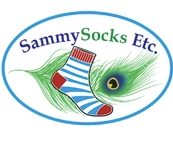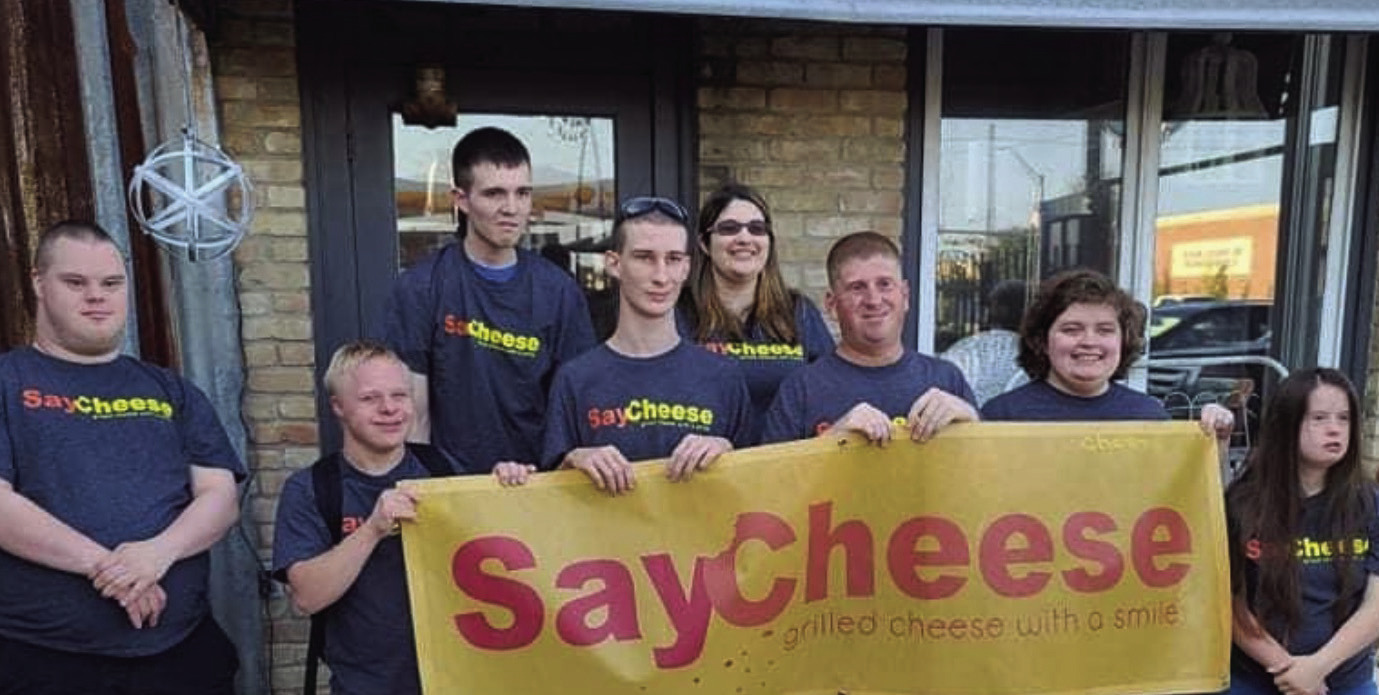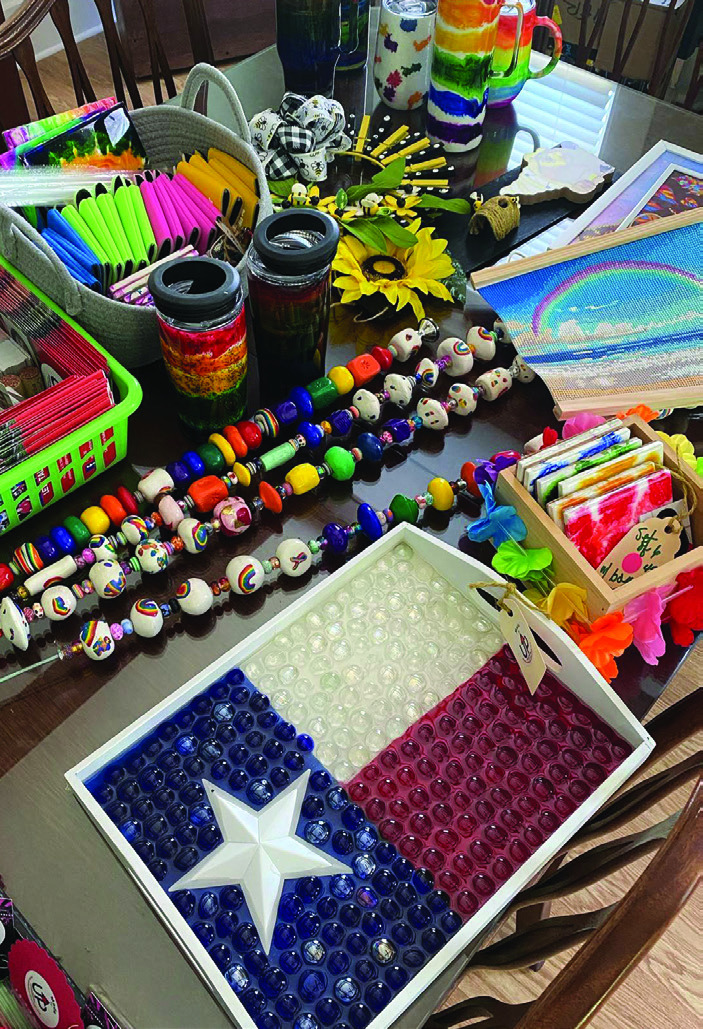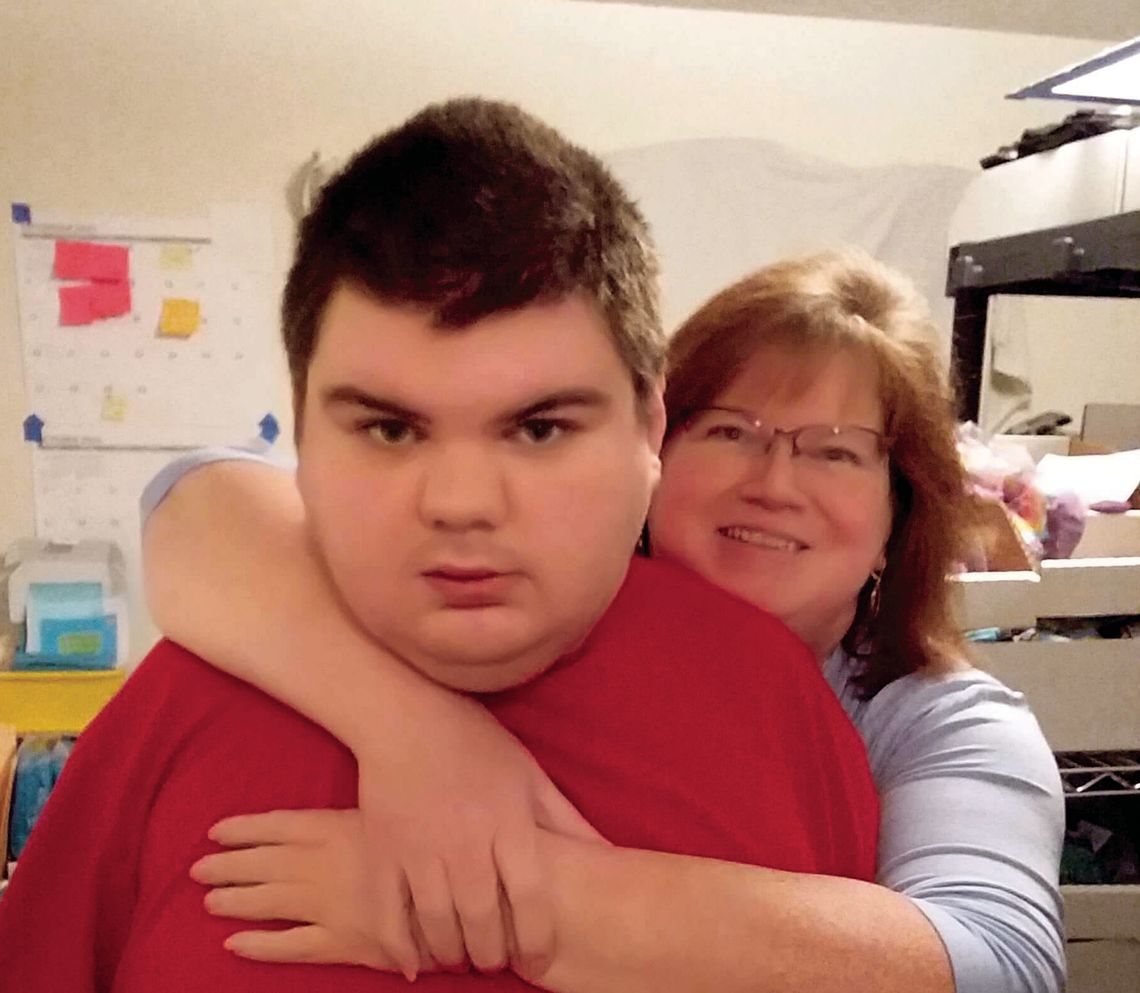Medical and social data indicate large numbers of adults on the autism spectrum have trouble finding work, but a number of individuals and companies are bucking that trend in eastern Williamson and neighboring counties.
One example of a formula that works for those on the spectrum is Hutto-based SammySocks Etc. – Sewing Seeds of Sock Serenity. The online business sells socks, coffee and tea, and its colorful website and Instagram feed are attention magnets, featuring everything from Dave the Sock Fairy, cute poems and free downloads of useful life tips to resources for families and people with disabilities.
Behind the light-hearted approach is a serious story about Mark and Sally Lyons and their son, Samuel, and the parents’ aim to raise a son with autism.
It’s a story an increasing number of Americans are experiencing in their own lives.
Autism Spectrum Disorder, or ASD, is the fastest-growing disability in the U.S. A Centers for Disease Control and Prevention report this spring based on 11 communities, including Austin, estimated that one of every 36 8-year-old children in the nation are “on the spectrum.”
Using that prevalence rate and demographic data, the Autism Society of Texas estimates there are roughly 500,000 people with autism in the state — many of them adults.
Through the state’s 18-Plus program, young adults with special needs can stay in school programs until they’re 22. Many are still not prepared to support themselves. According to the society, 80% to 90% of adults with disabilities, including autism, are unemployed. Even very high-functioning folks with autism with tremendous job skills may have trouble fitting in.
Many others need more support, and that often falls to older parents.
The Lyons were prepared. Samuel was diagnosed when he was 4. He has a phenomenal memory for dates. Now, he and his parents together operate the company.
“He’s amazing, sometimes — I could ask him when Michael Jackson died, or Bob Barker’s birthday, and he would know. Give him any date and he’ll tell you what day of the week it was,” Sally Lyons said.

Samuel Lyons has particular things he likes — red shirts, black pants and long drives in the evening with his father. The peacock feather in SammySocks’ logo symbolizes how sensitive — tactile defensive — he can be to the lightest touch.
Today Samuel is 25, and his parents are in their 60s. Mark Lyons, a teacher for 44 years, retired in 2020. His son aged out of the 18-plus program at the Hutto Independent School District.
Four months later, SammySocks was born.
“I started the business to help Samuel have a safe place to work and to help secure his financial future,” Mark Lyons said.
At first, the idea was to develop a product Samuel could help make. But that wasn’t a good fit.
“Then someone suggested selling socks online. They’re not consumable, they wouldn’t go bad. Sam helps package the socks and do a baggie with a coupon and a little card with ‘Sammy sayings’ and little poems I’ve written about socks,” the father added. “We used some of our retirement savings to get the business off the ground, with equipment and inventory. We started out with socks and now we have coffee and tea.”
The goal is to hire more workers with varied abilities.
“We’re trying to get big enough to hire people with different abilities like Samuel — somewhere they can work where if they have a meltdown, they won’t get fired,” Sally Lyons said.
The business also includes generous sharing — donations to Round Rock’s Hope Alliance, a “Random Acts of Sockness” program and other donations. Five percent of their profits go to United Partners of Pflugerville, where Samuel Lyons spends one day a week.
The Lyons’ business can be found at https://sammysocksetc.com/.

SAY CHEESE
SayCheese started in 2015, when Taylor High School’s Life Skills special education teachers Corey Graef and Debbie Jackson added food and hospitality to their vocational program. Over time, their classrooms became a restaurant where students with special needs prepared grilled-cheese meals and served the high school staff.
In 2019, SayCheese became a full-fledged 501(c)3 nonprofit. Its mission: helping people with disabilities find work and a successful life.
Today, there are a dozen team members from Taylor, Granger, Rockdale, Thorndale, Thrall and the surrounding area.
“Taylor Brethren Church lets us use their Fellowship Hall to train twice a month in the evenings. (Workers) learn to make the boxes the meals come in, make the butter with seasonings, practice taking orders and pouring soup — we’ve done tomato-basil soup — and learn customer service,” Graef said. “We have social events, too. We went to the Pinball Lounge, went dancing at the Granger Country Cotton Club, and we’re going to have a Halloween party.”
At first, SayCheese operated out of the kitchen of Karyn Morris’ Sweet & Southern Finds in Taylor, and the Old Taylor High site of the former Meals on Wheels kitchens.
“This past year we earned enough to buy a food truck,” Graef said.
They took the vehicle to the Taylor Rodeo this summer and The Thrall Volunteer Fire Department Street Dance Sept. 16.
At 36, Graef is well acquainted with the issues people on the spectrum can face. He taught special education at Taylor High for six years, and before that was at Georgetown Independent School District’s 18-plus program. He got interested in working with people with disabilities back in his years as a student at Taylor High.
“This one student saw my letter jacket and walked up to me and told me about how he was in the Special Olympics. I went to talk to his teacher, and it turned out I knew him — his family lived around the corner from us growing up. So, I started volunteering with Special Olympics,” Graef said.
Attending the University of North Texas, the educator worked at the Denton State School and went on to the Monarch School and Institute in Houston, where he was a home teacher living with three students.
“Two were autistic, one was OCD (obsessive compulsive disorder). It was a gas,” he added.
Graef agreed with others in the field that more help is needed for people on the spectrum as they transition to adulthood.
The state’s CLASS program, or Community Living And Support Services is good, but there’s a waiting list of 10-15 years to get in. There’s also a long wait to get into the Bluebonnet Trails program — parents are advised to sign up when their children are toddlers.
Graef mentioned Texas Sweet Heat Jam in Leander and the Down Home Ranch, between Elgin and Coupland, as examples of places where people with different abilities can work and enjoy life together.
“Things like SayCheese are needed,” he said. “Sitting around the house is not purposeful. There’s so much more. And when you work at something, you’re not just a person with a disability anymore. You’re the person who made my sandwich, or the person who brought me that wonderful soup.”
More such endeavors are needed, advocates said.
“It’s great when people are able to give young adults an opportunity to work in or start a business,” said Autism Society of Texas Executive Director Jacquie Benestante.
“It’s not on the parents to do all of this. We encourage parents to use the services that are available, but it’s not easy. Not every parent does or can figure out how to navigate the system. H-E-B and Dell (Technologies) are big companies that have good hiring practices. There are a lot more options than there used to be, and a lot more people on the spectrum in the workforce.”
UNITED PARTNERS

In 2017, Debbie Wiederhold opened United Partners of Pflugerville. She knew a lot about the challenges faced by parents of children with disabilities. Her son, Daniel, was born with brittle bone disease. Now he is 31.
“My dad was a school superintendent,” she says. “I know schools do a lot for students with disabilities. But too many parents realize in that last semester of school that their kid is not going to have something to do anymore.”
When her son aged out of public school, Wiederhold didn’t want him to sit at home. She found a supportive day program with activities and different work to do. But she wanted to find something closer to home.
In 2015, Wiederhold said, she started talking to different people about her idea for UP, and two years later, it opened in Pflugerville’s Immanuel Lutheran Church.
“We had four partners, and we knew it would grow. Now we have 16 partners and a waiting list of about 10. It’s incredible,” she said. “We look for their gifts and try to tap into them. It’s amazing what they can do."
From the parish hall, UP found a nearby building and bought it in a leap of faith. Today the partners work on various creations, from beaded wind chimes to paint pours on tiles and trays and different molds or cookie baking.
“Sally and Mark’s son Samuel loves math, so we have started him on the diamond dot art and he’s really good at it,” she said.
The partners’ creations are sold for $5$100 at their store next door, and festivals and events in the area, and profits go back into the program.
“I used to work for a statewide nonprofit in Austin called Texas Parent to Parent,” Wiederhold said. “I retired from that to start my own nonprofit. This is a much-needed thing — there’s room for it in every community.”
Bitty and Beau’s Coffee Shops in several Texas cities and Hugs Café, Greenhouse and Training Academy in McKinney are examples of successful nonprofit businesses employing mainly people with disabilities.
SERENITY KIDS BABY FOOD
Joe Carr, the chairman of the society’s Autistic Adult Advisory Panel, is on the very high end of the spectrum.
The founder of Austin-based Serenity Kids Baby Food with his wife, Serenity, Carr said he wasn’t diagnosed until later in life, but always felt different and found socializing difficult despite his skills.
“The premise to start with is to look at autism not only as a disability, or a curse, but to look for the gifts and special talents. That can lead to a mindset change. Let your kids be obsessed,” Carr said. “Accept there are certain things they are very good at that could lead to a career. I had to learn relationship skills from scratch. But my big energy (and) willingness to get a lot of attention was huge for the business with fundraising, retail pitches, attracting employees. Our baby was born the same day the product launched in 2018. Today we’re in 18,000 stores, with a huge online business.”
He is the first to acknowledge there have been challenges.
“I am different,” Carr said. “Life is a little harder for people like me. But a big thing parents can do is watch for the gifts. Finding them can lead to a mindset change, that ‘I am different, and there are other people who are different like me.’”








Comment
Comments